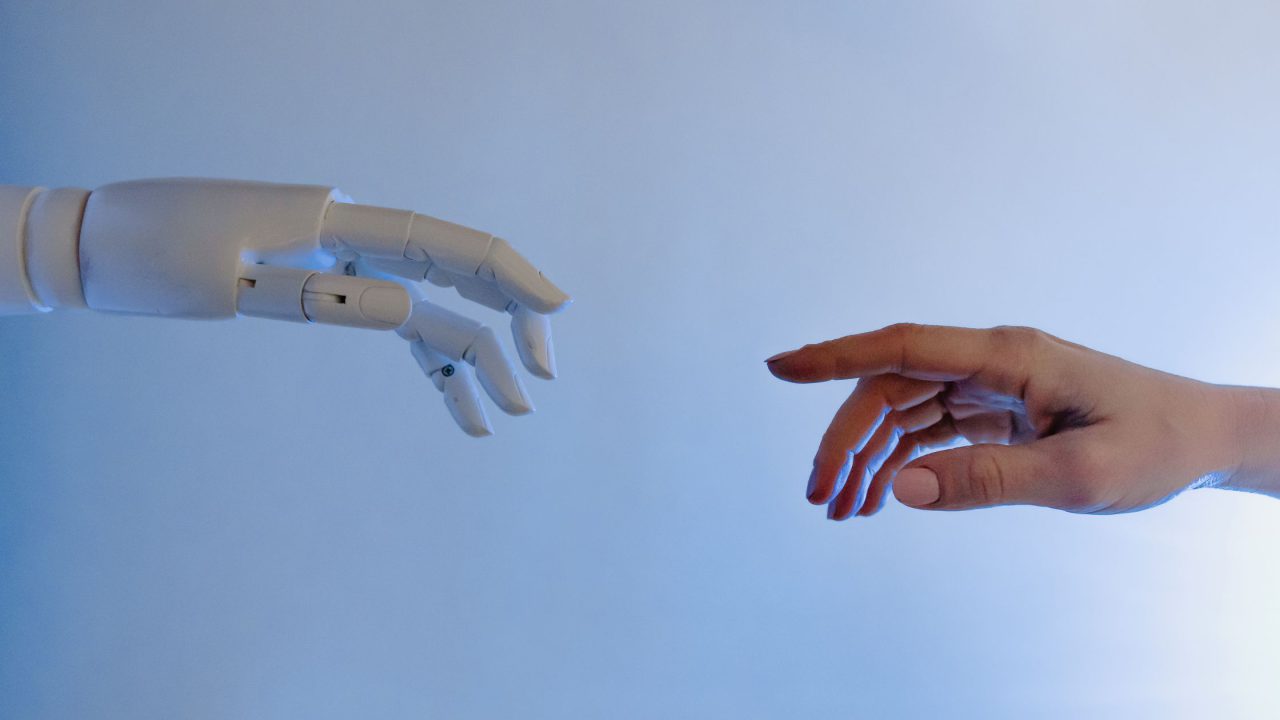The World Economic Forum declares AI in healthcare as ‘India’s trillion-dollar opportunity.’
Artificial Intelligence (AI) has the potential to transform healthcare services uniquely in India by improving patient outcomes, increasing efficiency, reducing costs, enhancing access to care, overcoming doctor-patient ratio and lessening burden on hospitals.
Here are some ways AI could change healthcare services that can come as a boon for a large country like India:
(A). Disease Diagnosis: Further advancement and application of AI will help doctors diagnose diseases quickly and more accurately. The process will cover analysis of laboratory tests, studying medical imaging, and related clinical data. As a result, many diseases can be identified at an early stage, enabling earlier treatment.
(B). Medical Imaging: AI algorithms has potential to augment analysis of various medical images such as CT scans, MRI scans, and X-rays etc. This aspect will help identify patterns that might not otherwise be possible with the human eye. Further, this will in turn lead to early detection of diseases such as cancer, besides better diagnosis of conditions which have been elusive to detect using traditional methods.
(C). Personalized Treatment: AI can help doctors personalize treatment plans based on a patient’s unique characteristics, such as genetics, medical history, and lifestyle. This can lead to more effective treatments and better patient outcomes.
(D). Telemedicine: Generative AI, virtual assistants, and AI-powered chatbots will soon be deployed to help patients access medical advice and consultations from the comfort of their homes or communities. This will increase access to primary as well as specialized care especially in remote areas, thus reducing the burden on hospitals and overcoming constraints in medical infrastructures.
(E). Drug Discovery: AI can accelerate drug discovery by identifying potential drug candidates and predicting their efficacy and safety. It predicted that very soon AI will be leveraged in developing drugs under pharmaceutical segments in the life sciences industry. Development of new treatments for diseases that currently have no cure is also expected out of the same.
(F). Predictive Analytics: AI algorithms can analyse patient data to identify patterns and thereby predict health outcomes. Doctors will be able to identify high-risk patients and to intervene early, and to prevent or manage chronic conditions such as hypertension and diabetes.
Precaution
In the near future, wider implementation of AI in healthcare may call for careful consideration of ethical and privacy concerns, besides appropriate regulations and guidelines to ensure patient safety and data security.
Indian Start-ups leveraging AI in Healthcare
Application of AI in healthcare has been emerging as one of the world’s highest-growth industries. According to CB Insights, AI sector funding was up by 108 per cent in 2021, with healthcare accounting for about a fifth of overall funding.
There are several Indian start-ups that are working in the area of using AI in healthcare.
Here are a few examples:
HealthifyMe: Established in 2012, Bengaluru-based HealthifyMe harnesses AI to provide personalised services such as calorie tracking, advice on diet, nutrition and fitness information, and coaching. The application can easily be integrated with wearable technology such as activity tracker.
DocTalk: Mumbai-based DocTalk was founded in 2016. This is a mobile application that allows patients to save all their medical history files on the cloud. With the app, users can also have conversations their doctors and get prescriptions on-the-go.
Niramai: This is a Bangalore-based start-up uses AI-powered thermal imaging technology or thermography for early breast cancer detection. Niramai thermal device is placed three feet away from the patient and it captures five specific thermal images. Niramai software tool automatically analyses these images and sends the analysis report, duly certified by a senior radiologist.
Tricog Health: This is yet another Bangalore-based innovative start-up that uses AI to analyse ECG data and provide real-time diagnoses of heart attacks. The company says that it focuses on accelerating cardiac care by integrating medical grade artificial intelligence, technology and human medical expertise.
Qure.ai: Mumbai-based start-up Qure.ai uses AI to analyse medical images and provide diagnoses for various conditions, including lung cancer, tuberculosis, heart conditions, neurocritical care and brain haemorrhage.
These are among the start-ups that are leveraging the power of AI to offer innovative solutions that can improve patient outcomes, increase efficiency, and reduce costs in the healthcare industry. While there are many challenges in applying AI to healthcare services, these enterprises are showing great promise and have the potential to make a significant impact on the healthcare industry in India and beyond.
Market Size
The market size for using AI in healthcare is projected to grow significantly in the coming years. According to a report by Grand View Research, the global AI in healthcare market size was valued at USD 2.1 billion in 2020 and is expected to move forward at a compound annual growth rate (CAGR) of 41.5 per cent from 2021 to 2028. By 2028, the market is expected to reach USD 51.3 billion.
North America is currently the largest market for AI in healthcare, followed by Europe and Asia Pacific. However, the Asia Pacific region is expected to exhibit the highest growth rate during the forecast period, driven by increasing healthcare spending, the growing prevalence of chronic diseases, and the increasing adoption of digital health solutions.
Healthcare applications of AI algorithms now include early illness detection, drug development trials, precise patient monitoring, and self-care. The World Economic Forum predicts that by 2025, India will see an AI expenditure of USD 11.78 billion, which will eventually add USD 1 trillion to the country’s GDP by 2035
As per the Indian AI Healthcare Market 2019-2025 Report, AI in the Indian healthcare industry has been estimated to grow at a CAGR of 50.9 per cent during the forecast period.
Factors Favouring Growth
The growth of the AI in healthcare sector is being driven by several factors, including the increasing adoption of AI-powered solutions in medical imaging and diagnostics, drug discovery, personalized medicine, and patient data analysis. AI-powered solutions are being used to improve the accuracy and speed of diagnosis, enhance patient outcomes, reduce costs, and streamline healthcare operations, leading to its popularity.
The COVID-19 pandemic has also accelerated the growth of the AI in healthcare market as healthcare providers and governments around the world are increasingly turning to AI-powered solutions in building more resilient and efficient healthcare mechanisms.


